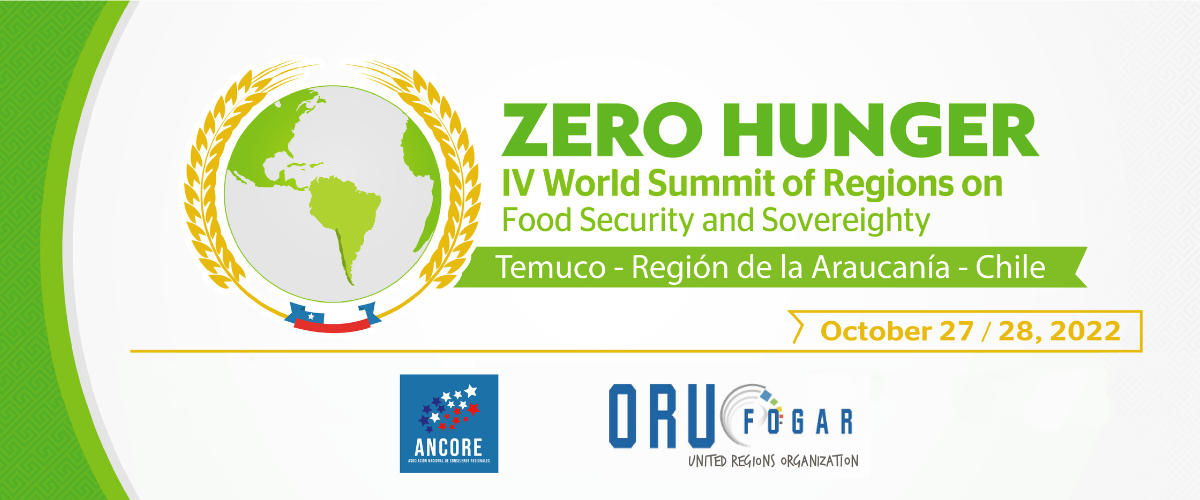The IV Summit of Regions “Zero Hunger” will be held in Chile, in October

In order to create a future marked by world food security and promote the Sustainable Development Goal 2 "Zero Hunger" set for 2030 by the United Nations, the IV Regions Summit on Food Security and Sovereignty will be held on October 27 and 28 , in Temuco, Araucanía (Chile). The event will be organized by ORU Fogar and by the Association of Regional Councilors of Chile (ANCORE).
The 2020 report on "The State of Food Security and Nutrition in the World" of the Food and Agriculture Organization of the United Nations (FAO) shows that despite considerable progress in reducing the number of hungry people, food insecurity and various forms of malnutrition are increasing year by year. Although the world food production level has reached the highest level in history, the regions in the food system are still unbalanced.
Since its foundation in 2007, ORU Fogar has shown its total interest in placing food security at the center of the development debate, and it actively promotes North-South regional cooperation. Therefore, after three summits held respectively in Senegal, Colombia, and Ecuador, and on the convening of the Summit on Food Systems by the Secretary General of the United Nations, ORU Fogar will organize in this October 2022 the IV Summit of the World Regions on Food Security.
Its purpose is to convey to the regional and local terrain, the decisions and policies adopted at the Summit on Food Systems 2021. The event aims to show the commitment of the regions when designing and taking collective measures consisting of interventions to throughout the entire food supply chain, in the food environment and in the political economy that shapes trade, public spending and investment policies. With efforts aimed at transforming the world's food systems with special emphasis on the most isolated and vulnerable communities, as well as sustainability for both people and the planet, the summit will not only call for action to territorial, local and regional governors, but will also call on national governments to incorporate nutrition into their agricultural approaches, strive to reduce the factors that increase costs in production, food storage, transportation, distribution and marketing, support small local producers to grow and sell more nutritious food and ensure their access to markets, prioritize child nutrition as the category with the greatest need, promote behavioral change through education and communication; and integrate nutrition into social protection systems and investment strategies at the national level.








































































